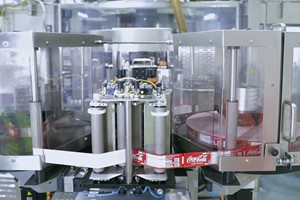The promise of precision fermentation may be seen in the growing number of partnerships tapping into the technology’s potential to produce value-added ingredients. While still in the development cycle — with many challenges still to overcome — it is clear forward-looking companies see a future where ingredients derived from the technology have a central role in food and beverage product development.
Precision fermentation uses microorganisms and gives them a specific genetic code to produce a compound of interest when fermented under precise conditions. The process is perceived as environmentally sustainable because it allows for the production of ingredients, often analogs of animal-based ingredients, in a far less resource-intensive manner.
Early work has focused on producing alternative dairy and egg ingredients such as casein, lactoferrin and egg proteins as well as projects intended to make the process more efficient. Large companies investing in the development of the ingredients include Danone, Unilever, Grupo Bimbo, FrieslandCampina and Kalsec.
Danone is working with two companies in France to create the Biotech Open Platform to scale precision fermentation. The company is investing more than $17 million in the project.
Unilever, through its The Vegetarian Butcher brand, is working with California-based startup The Every Co. to replace egg ingredients in The Vegetarian Butcher’s plant-based meat products. Using precision fermentation, The Every Co. produces egg proteins it says have similar binding and gelling functionalities as conventional egg proteins. And Grupo Bimbo has started using sweet proteins produced by Oobli in some of its baked foods. The ingredients are derived from fruits and produced using precision fermentation.
These initiatives represent a steppingstone to bringing precision fermentation to the mainstream. As more initiatives emerge, it may lead to greater investment, more infrastructure and the unlocking of even more innovations.
But reaching commercial scale will require improvements throughout the supply chain, including strain development, feedstock optimization, bioprocess design and end-product formulation and manufacturing, according to The Good Food Institute (GFI).
Equipment and infrastructure also will play a critical role, the GFI said. Bioreactors provide a controlled environment for microorganisms to grow, and there are many designs being developed. Key to market evolution will be industrial-scale facilities that can produce enough finished products to meet demand.
Developing an idea and getting a finished product to market often is portrayed as the most difficult aspect of entrepreneurship and innovation.
By Keith Nunes











